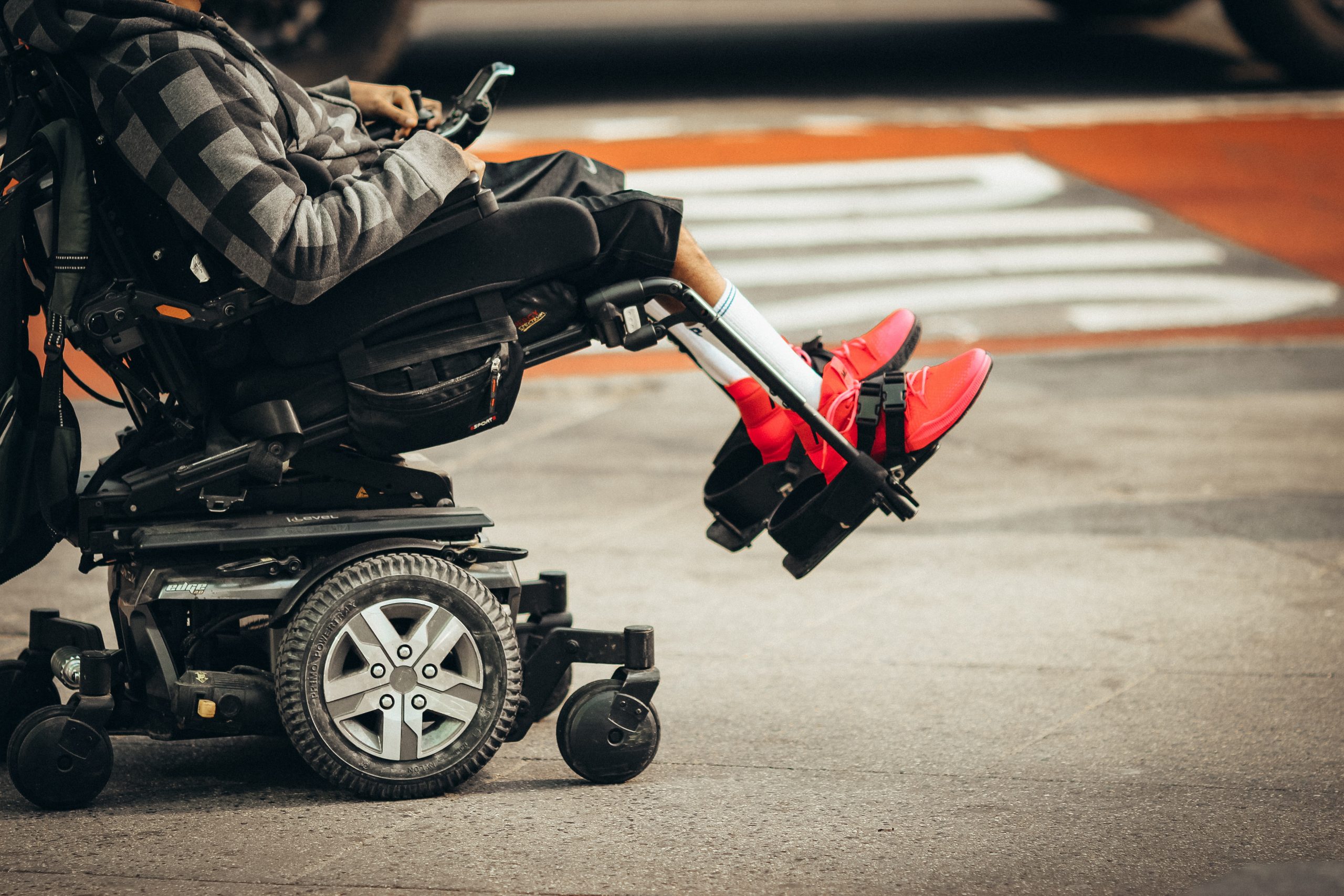New research by Samsung UK has revealed attitudes to hidden and visible disabilities in the workplace. The findings show that we’re a nation uncomfortable talking about disabilities, with nearly half of the population (45%) admitting to not feeling comfortable saying the word ‘disabled’ or ‘disability’ in everyday conversations, creating a feeling of taboo about a condition that affects 14 million people[1] in the UK.
Over half of people with disabilities have tried to conceal their challenges from work colleagues due to the fear of stalling their professional progression or landing a promotion (almost 45%) or being judged and made to feel like an outsider (41%). Forty percent felt that their colleagues valued them less after they realised they had a disability.
Despite one in five (20%) of people in the UK having a hidden or visible disability [2]– 65% of people with disabilities wish to remove any embarrassment or awkwardness felt when discussing their challenges with their colleagues. This fear of open conversation leads to 40% of workers with disabilities feeling judged and facing obstacles in their jobs every day.
Everyday challenges faced by people with disabilities at work according to the research include:
- Being negatively stereotyped / judged by colleagues (34%)
- Lack of quiet areas in the office (33%)
- General accessibility, e.g., stairs, or space requirements (32%)
- Lack of support (31%)
- Bathroom access / availability (30%)
- Getting into office building (29%)
(Above: List of everyday obstacles faced by people with disabilities at work, in order)
When it comes to accessibility in the workplace, almost two thirds (70%) felt their workplace isn’t providing the tech that enables greater accessibility to people with disabilities, showing the need for greater access and awareness of accessible technology features amongst employers. Samsung works with partners such as Microsoft to ensure everyone can benefit from accessibility features across its product categories.
For example:
- Samsung mobile devices have accessibility settings for those with limited sight, hearing impairments, or difficulties with interaction and dexterity. The technology allows the user to make it read messages aloud or light up whenever it detects a startling noise.
- For all new washing machines released since 2019 braille labels and tactile points were applied to buttons so that they are easy to locate.
- And the Galaxy Book S “Ease of Access” settings are helpful for those with physical impairments. Users can alter the display with colour filters and high contrast fonts, add closed captions to their screen, or control the device using voice commands.
Steven Woodgate, Head of Category Management, Samsung Electronics UK & Founder of Employee Resource Group for those with disabilities, True Ability says: “I have dyslexia and dyspraxia, they are my superpowers that enable me to provide a different perspective and way of thinking that adds value to my day-to-day role and to the people around me. Physical and neurodiversity should be championed in the workplace and employers need to support this by providing the right tools and technology to allow colleagues with disabilities to thrive, contribute on a level playing field, and to reveal their own individual superpower.
“But technology is only half the story. To embrace openness, we need to evolve and change workplace culture, and promote inclusion to be at the centre of an organisation to empower employees.”
To help support this, Samsung has partnered with Martyn Sibley, successful entrepreneur, founder and CEO of disability and inclusion marketing agency Purple Goat, co-founder of lifestyle magazine Disability Horizons and LinkedIn Changemaker, to share his tips on what businesses can do to be more inclusive.
- Knowing 20% of the UK population has a disability, seek to represent this across all stakeholders and levels of hierarchy e.g., embed this throughout recruitment, leadership, and marketing.
- Speak to people with disabilities about barriers and solutions. The community should lead – always remember there can be nothing about us, without us.
- Disability isn’t only relatable to wheelchair users and accessibility doesn’t mean expensive. Aim for perfection, but approach with kindness. Equally, just start disability inclusion where possible today – be the change you want to see.
- Build a culture where colleagues and employers champion disability inclusion and encourage allyship in the business.
- Never make assumptions.
Samsung UK stands for fairness, compassion, and respect in the workplace. Whilst its diversity and inclusion journey is ongoing, recent initiatives include:
- Rolling out conscious inclusion training to all colleagues. working closely with Global Diversity Practice
- Establishing Employee Resource Groups (ERGs) at Samsung UK including Women@Samsung – established to attract, retain, and develop women at Samsung UK and Ireland, Black Professionals at Samsung – an ERG for black colleagues, and True Ability – a group for colleagues with visible and invisible disabilities.
- Unmind, the mental health platform which supports employees through improving sleep and nurturing relationships, to reducing stress and managing anxiety and Lifeworks – an Employee Assistance Programme that provides counselling and advice
- Supporting accessibility in its UK offices to consider people with mobility needs or people who use a wheelchair by ensuring lifts are available for those unable to use stairs within the office, all main passageways and paths are wide enough for wheelchair users, all light switches are at a level reachable by wheelchair users, break out areas are wheelchair accessible and having height adjustable desks available to accommodate wheelchair users or those who prefer to flex between sitting and standing. Colleagues with invisible disabilities are supported through providing hearing loops and ensuring that lighting can be controlled for those with sensitivities.
[1] Family Resources Survey (2020 to 21)









